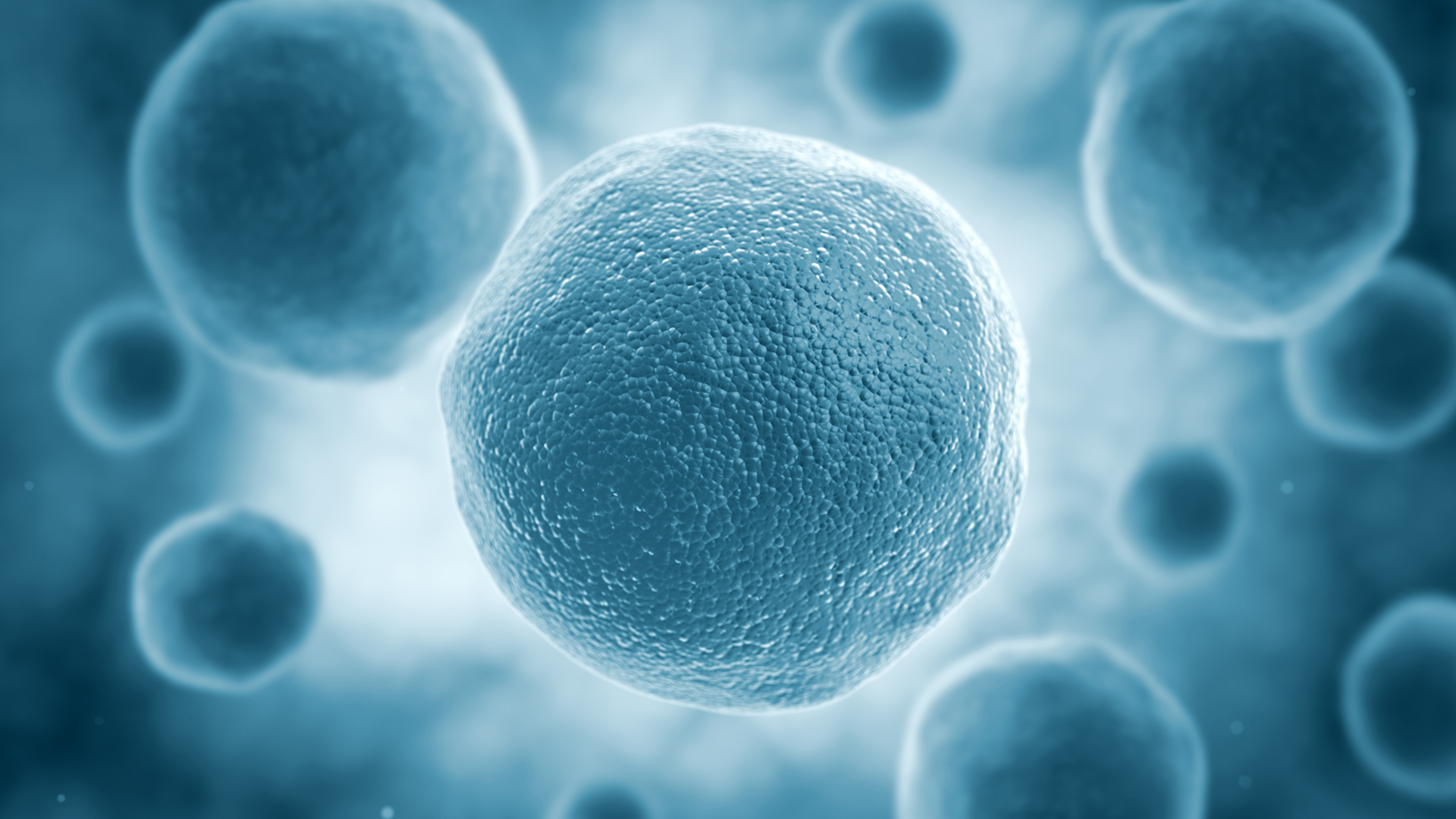Amino Acids for Men: How Proper Supplementation Can Keep You Healthy as You Age
 By: by Amino Science
By: by Amino Science

Getting enough amino acids for men is especially important as you age. As you may be aware, the aging process often involves significant muscle loss. But it doesn't have to. Studies show that amino acid supplementation can counteract age-related muscle breakdown, ensuring you remain healthy and vital.
Why Do We Lose Muscle Mass as We Age?
Amino acids function as the building blocks of protein, which in turns makes up your muscle tissue, and muscle plays many important roles in maintaining optimal health. As we age, however, the body’s ability to use protein effectively declines. This can result in anabolic resistance, a biological process that lowers the body’s ability to break down and build up protein.
The result? Sarcopenia, or age-related muscle loss, which sets in after age 30. As sarcopenia progresses, it can result in unpleasant and inconvenient outcomes such as:
- Impaired athletic performance
- Increased muscle weakness
- Decreased mobility
- Heightened risk of injury
Though scientists have yet to pinpoint the exact mechanism of action that drives the progression of sarcopenia, it appears to be linked to imbalanced muscle protein turnover in which protein breakdown outpaces protein synthesis. Declines in the rate of muscle protein synthesis can be aggravated by other factors, including increased sensitivity to short-term inactivity and decreased sensitivity to anabolic (muscle-building) stimulus, both of which can come with age as well. Together, this can result in significant loss of muscle mass.
Researchers have found that you can lose 3-5% of your muscle mass every decade, for an average loss of 30% throughout your life. Can is the operative word. There are ways to improve protein metabolism and stall sarcopenia. Amino acid supplementation is key.
The Connection Between Testosterone and Muscle Growth
The predominant hormonal response to aging in men is reduced secretion of the hormone testosterone from the testes. Testosterone is the primary anabolic hormone in men, meaning it is the main biological force behind the building of new muscle tissue.
Testosterone has other important effects as well, including a significant impact on sexual drive and capacity. In fact, it's common for a a reduction in testosterone to adversely impact sexual function (both the level of interest in sex as well as the ability to do something about that interest) in older men.
Understandably, the adverse outcomes associated with testosterone declines make replacement therapy quite popular. Testosterone replacement therapy is limited, however, by the fact that it cannot be given as a pill.
Patches are commonly used to increase testosterone levels, but this method limits the amount of testosterone that can be delivered. While some aspects of testosterone action can be restored with the patches, such as sexual function, the levels delivered are too low to impact muscle growth.
To increase the concentration of testosterone enough to have an anabolic effect on muscle, testosterone must be injected, usually once per week or once every other week.
Furthermore, the use of testosterone replacement therapy is controversial because there’s concern that any existent prostate cancer may be stimulated by testosterone therapy. This fear arises from the fact that the first line of action in the treatment of prostate cancer is often giving a drug that blocks the action of testosterone on the prostate.
Testosterone replacement therapy carries with it serious risk of negative responses, too. According to the Mayo Clinic, potential risks include:
- Increased risk of developing sleep apnea
- Acne and other skin irritations
- Enlarged breasts
- Decreased sperm production
- Testicle shrinkage
- Elevated risk of deep vein thrombosis and pulmonary embolism
Some evidence indicates that testosterone replacement therapy raises your risk of heart disease, but further studies are needed as findings so far have been contradictory.
If you choose to take these risks and receive hormonal therapy, you should still consider using amino acid supplements to bolster its effects on muscle growth. Testosterone acts similar to resistance exercise in that it primes the muscle to increase its rate of protein synthesis. An increased supply of building blocks (i.e., dietary essential amino acids) is a prerequisite to producing new protein at an increased rate.
How to Maintain Muscle Mass and Function as You Age
While it is impossible to entirely stop the process of aging, it is definitely possible to slow the progression of muscle loss.
Eating high-quality protein food sources is key. Pack your diet full of eggs, milk, quinoa, red meat, chicken, turkey, and fish.

Be honest about your ability to consume enough protein to meet your needs as you age, especially if you are trying to build or maintain muscle. In America, 30% of people over the age of 65 fail to eat the minimal daily recommended intake of protein. Furthermore, the quality of dietary protein can also decrease, which is why it’s so important to increase your consumption of essential amino acids by incorporating amino acid supplements into your overall dietary pattern.
Amino Acids for Men: The Older You Get, the More Essential They Become
While essential amino acid supplements (EAAs) can benefit everyone, they are a particularly important component of dietary intake in older people. An EAA supplement can help overcome anabolic resistance, or the inability of the body to adequately build new muscle protein. Further, digesting and utilizing EAAs places less of a burden on the liver and kidneys than eating intact protein does.
What Are the Essential Amino Acids?
Though your body needs 20 different amino acids for optimum nutrition, only nine of those are classified as essential:
- Histidine
- Isoleucine
- Leucine
- Lysine
- Methionine
- Phenylalanine
- Threonine
- Tryptophan
- Valine
These nine amino acids have been deemed essential because, unlike the nonessential amino acids, they cannot be produced endogenously. This means that you must obtain all the amino acids you need from your diet or dietary supplements.
Each of the nine essential amino acids contribute to a whole host of crucial tasks within the body. For instance, the brain uses phenylalanine to produce four highly important neurotransmitters—tyrosine, dopamine, epinephrine, and norepinephrine. Meanwhile, threonine helps to form structural proteins like collagen and elastin that ensure your skin and connective tissue remain both firm and flexible. Methionine contributes significantly to your metabolic processes, flushes toxins from the body, supports healthy tissue growth, and facilitates the absorption of zinc and selenium. And histidine acts as a precursor for histamine, a neurotransmitter that regulates your immune responses, digestion, sleep-wake cycle, and sexual function.
Your body needs a steady supply of essential amino acids throughout your life, but the older you get, the more important it becomes.
The Role of Branched-Chain Amino Acids (BCAAs)
Branched-chain amino acids (BCAAs) are a subset of essential amino acids named for their unique molecular structure. These three amino acids—leucine, isoleucine, and valine—have been found to directly stimulate the muscle protein synthesis process. Leucine, the most powerful of the three, can activate cellular signals that initiate the muscle growth process.
Because BCAA supplementation can also improve exercise performance and speed muscle recovery by limiting muscle soreness, they're quite popular in the world of sports nutrition. However, that should not obscure their importance for non-bodybuilders who simply desire to maintain skeletal muscle mass as they age.
Studies have shown that in older rats, the beneficial effects of leucine on muscle protein synthesis become less pronounced. According to a literature review published in the Journal of Nutrition, however, this resistance can be overcome by either using larger doses of essential amino acids or doses containing a higher proportion of leucine specifically.
Despite the strong effect leucine has on muscle growth, it tends to be more effective to use an EAA supplement rather than a BCAA supplement. If you're interested in learning more about the difference between EAA supplements and BCAA supplements, this article by Dr. Robert Wolfe provides an excellent overview of the issue.
For now, simply know that in order for a complete protein to be produced, all the EAAs must be present. Therefore, an infusion of BCAAs alone will not produce the same level of results as supplementing with EAAs. As Dr. Wolfe put it: "The maximal effectiveness of the BCAAs is only achieved when they are taken along with the other six EAAs."

Why EAA Supplements Can Outperform Dietary Protein
An EAA supplement not only stimulates muscle protein synthesis but also activates an increased recycling of nonessential amino acids (NEAAs) back into protein. In contrast, ingested dietary proteins add more NEAAs into circulation.
Surplus NEAAs are metabolized by the liver and ultimately produce urea and ammonia, which are excreted in urine by the kidneys. Reutilizing NEAAs in circulation by providing only EAAs means less work for the liver and the kidneys. The kidneys benefit since they do not have to excrete extra urea and ammonia in the urine.
EAA supplements can also help with the problem of insulin resistance so common in older people. One of the characteristics of insulin resistance with aging is that fat accumulates in the liver and limits insulin action as a result. Older individuals have, on average, twice the fat in their livers as they did when they were younger than 30. EAA supplements reduce liver fat in the elderly to the same degree as the most effective medication, and with none of the adverse effects of that medicine. As a result, insulin sensitivity is improved.
Expert Advice on Dosage of EAA Supplements
Research has shown that a dosage as small as 3.6 grams (the equivalent of 20 grams of high-quality protein) of EAAs can effectively stimulate muscle protein synthesis in elderly people, and when taken over time, this dosage can induce functional improvements. Optimally, two doses per day should be taken. In some circumstances a high dose may be considered.
Of course, always discuss with your health care provider before adding any supplements to your dietary plan. If your normal diet is relatively deficient in EAAs (e.g., a vegetarian or vegan diet), then larger doses of an EAA supplement are essential.
If you are exercising, the timing of the ingestion of the EAA supplement should be coordinated with the exercise (typically, taking amino acids before a workout will lead to more pronounced benefits than when taken post-workout).
Take EAAs in free form with minimal mixing with other nutrients. Amino acid powders should be pure, rather than casein or whey protein powders and the like. Mixing amino acid powder into a beverage tends to be the most convenient and bioavailable.
Look no further than Amino Co essential amino acid supplements, which meet all the qualifications mentioned above. And if you're a man determined to age healthily, then check out Life, our patented Active Aging blend.

Up to 25% off Amino
Shop NowTAGS: supplements
Join the Community
Comments (0)
Most Craveable Recipes




 833-264-6620
833-264-6620



















